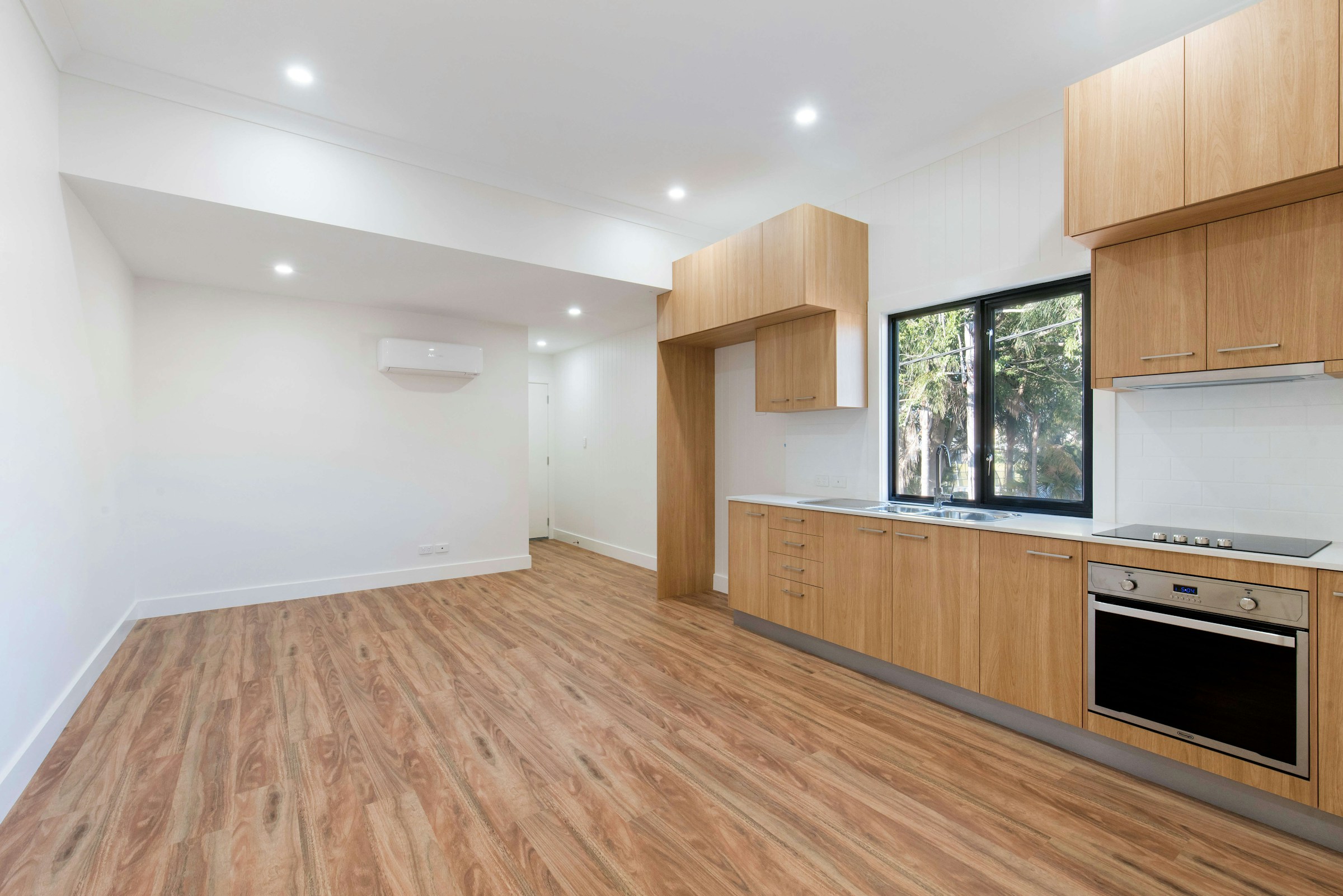When it comes to selecting the best flooring for your kitchen, the decision isn’t always straightforward. With an abundance of options in the market, you might find yourself overwhelmed. The kitchen, being a space of high activity, demands a flooring that is durable, easy to clean, water-resistant, and most importantly, anti-slip. This last feature is often overlooked, yet it’s crucial in preventing accidents in your kitchens. In this article, we’ll look into various types of anti-slip flooring and help you determine the most effective flooring options for your kitchen.
Ceramic and Porcelain Tiles
If you’re thinking about revamping your kitchen with an elegant and sophisticated feel, ceramic and porcelain tiles might be your preferred choice.
Also to discover : How can you incorporate a pet feeding station into your kitchen design?
These tiles are known for their durability and resistance to water and stains, making them ideal for kitchens. They’re also incredibly resistant to wear and tear. But what makes ceramic and porcelain tiles particularly appealing is their anti-slip feature.
Many tile manufacturers now incorporate anti-slip technology into their products. This technology often involves adding a textured surface or a special anti-slip coating to the tile. The texture or coating increases traction, preventing slips and falls.
Have you seen this : What advanced features to look for in a smart refrigerator?
However, it’s important to note that not all ceramic and porcelain tiles come with this anti-slip feature. When shopping for these tiles, make sure to check for an anti-slip rating. Tiles rated R9 or higher are considered safe for kitchen floors.
Vinyl Flooring
Vinyl flooring has seen a dramatic rise in popularity over the past few years, thanks to its versatility and affordability.
Vinyl is a synthetic material known for its resilience and durability. It’s capable of withstanding heavy foot traffic, making it an ideal choice for busy kitchens. Since it’s waterproof, you won’t have to worry about water and other spills ruining your kitchen floor.
But what makes vinyl flooring stand out is its anti-slip properties. Vinyl floors often come with a textured surface which provides grip, reducing the chances of slipping. Some types of vinyl flooring also have a special anti-slip coating for added safety.
Despite its many advantages, keep in mind that vinyl flooring can be susceptible to scratches and dents from heavy kitchen appliances. Therefore, it’s essential to invest in high-quality vinyl flooring with a thick wear layer for extra protection.
Wood Flooring
There’s no denying the beauty and warmth that wood flooring can bring to a kitchen. Wood floors are timeless and can work with virtually any kitchen style.
Hardwood flooring is known for its durability and resistance to wear and tear. However, it isn’t naturally anti-slip. To make your wood floor safer, you’ll need to add an anti-slip coating or finish.
These coatings come in different types, including polyurethane, oil, and wax finishes. Some of these finishes are specifically designed to provide traction and prevent slips. When choosing a finish, consider factors like the amount of foot traffic in the kitchen, the type of wood, and your preferred look for the floor.
Despite its charm, wood flooring is susceptible to water damage. Therefore, it’s important to promptly clean any spills and to avoid installing it in areas prone to high moisture.
Rubber Flooring
Looking for a commercial-grade flooring option for your kitchen? Rubber flooring might be your solution.
Rubber flooring is commonly found in commercial kitchens due to its excellent slip-resistance and resilience. It’s inherently anti-slip, thanks to its natural texture. This flooring type also absorbs shock, making it comfortable to stand on for long periods.
Rubber flooring is also water-resistant, making it easy to clean and maintain. However, like any flooring type, it does have its downsides. It can be susceptible to damage from grease and oil, making it less ideal for kitchens with heavy cooking.
Choosing the Right Anti-Slip Flooring for Your Kitchen
Choosing the right flooring for your kitchen is a decision that should be made with careful consideration. While aesthetics and durability are important factors, never compromise on safety. An anti-slip floor can go a long way in preventing accidents and ensuring the well-being of your family.
Whether you choose ceramic tiles, vinyl, wood, or rubber flooring, always consider their anti-slip properties. Remember to check for anti-slip ratings or ask about anti-slip finishes or coatings. By doing so, you can enjoy a kitchen that’s not only stylish and durable but also safe.
Stone Tile Flooring
Stone tile flooring is another option worth considering for your kitchen. It brings a unique and sophisticated look that can complement any kitchen design. More importantly, it offers commendable anti-slip properties.
Stone tiles like granite, slate, and travertine have a naturally rough and textured surface providing good traction. This slip resistance feature makes them suitable for kitchen floors. Notably, certain types of stone tiles can be treated to increase their slip resistance, thereby enhancing their safety.
In addition to their anti-slip quality, stone tiles are highly durable and water-resistant. They can handle heavy foot traffic and are resistant to wear and tear. However, their porous nature can make them susceptible to stains. To mitigate this, stone tiles require sealing every few years. Sealing not only protects the stone from staining but can also enhance its anti-slip properties.
Despite their many benefits, stone tiles tend to be colder underfoot. Therefore, they may not be the best option if you spend long periods in the kitchen. They also tend to be higher in cost compared to other flooring options like vinyl or ceramic tile.
Cork Flooring
If you’re looking for a combination of comfort and safety, cork flooring can be a great choice. The material offers a soft, cushion-like feel underfoot, making it comfortable to stand on for longer periods.
Cork’s natural texture provides excellent slip resistance, making it a safe option for kitchen flooring. Since cork absorbs shock, it also minimizes the impact should a fall occur.
Besides its slip-resistant quality, cork flooring is also water-resistant and easy to clean. However, it requires regular sealing to maintain its water resistance and improve its durability. It’s also worth noting that while cork is generally durable, it can be prone to scratching and denting from heavy kitchen appliances or high heels.
While cork flooring might not be as common as other flooring options, it’s a sustainable choice. The material is harvested from the bark of the cork oak tree, which regrows and can be re-harvested every 9-12 years.
Conclusion
In conclusion, the right choice of kitchen flooring should not only reflect your style and meet your durability needs but also prioritize safety. There are several anti-slip flooring options to choose from, including ceramic and porcelain tile, vinyl, wood, rubber, stone tile, and cork flooring.
Each flooring type comes with its unique set of pros and cons. Therefore, it’s crucial to consider factors like your kitchen’s activity level, exposure to water, and your budget. Also, remember to check for anti-slip ratings or inquire about anti-slip finishes or coatings when shopping for your kitchen floor.
In your quest for the perfect kitchen floor, don’t overlook the importance of slip resistance. An anti-slip kitchen floor reduces the risk of slips and falls, ensuring your kitchen is a safe place for all who use it. Regardless of your choice, always remember that a floor’s looks and durability should go hand-in-hand with safety.






